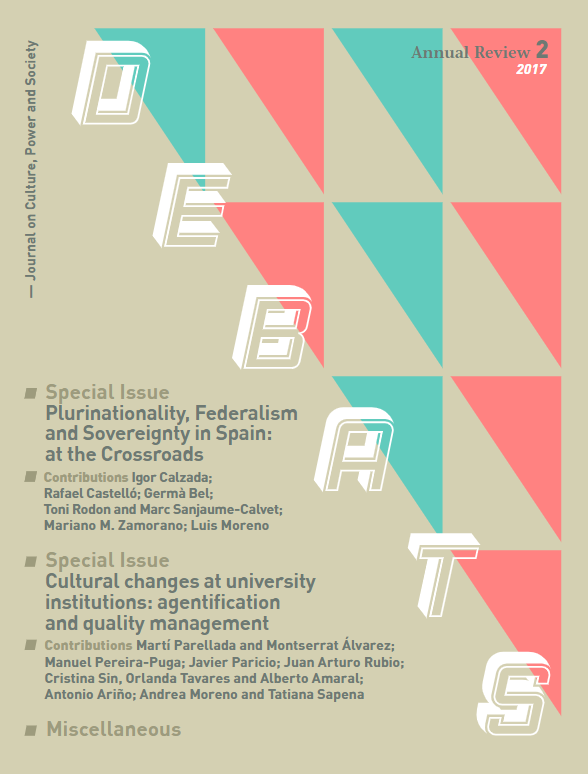Expert‑panel accreditation evaluation‑practices: an autoethnographic case study of the Community of Madrid
Resum
Accreditation is defined by the European Higher Education Area quality‑assurance agencies as a key element in quality management and continuous improvement in university teaching‑learning processes, and is an institutional practice that started to be developed in 2014 in Spain. This article illustrates the case of the Community of Madrid Quality Agency, as case study analysis through my experience as a panel member for the accreditation of higher‑education qualifications. Methodologically, it is based on an autoethnographic approach and uses the theory of symbolic interactionism to reveal and analyse the evaluative process and culture. For this purpose, two analytical axes were drawn: student learning‑outcomes and the value of the human resources assigned to the degree in terms of their academic research, both criteria which the quality agencies consider to be critical for a favourable final report. The interactions of the expert panel at the different stages of the accreditation consideration‑process, based on these two criteria, are presented with the aim that future case studies will test them in the context of collaborative learning, helping to achieve the greatest possible academic rigor in the accreditation process.Descàrregues
Descàrregues
Publicades
Com citar
Número
Secció
Llicència
Sense perjudici del que disposa l'article 52 de la Llei 22/1987 d'11 de novembre de Propietat Intel·lectual, BOE del 17 de novembre de 1987, i conforme a aquest, els/les autors o autores cedeix/en a títol gratuït els seus drets d'edició, publicació, distribució i venda sobre l'article, per tal que siga publicat a Debats. Revista sobre cultura, poder i societat.
Debats. Revista de cultura, poder i societat es publica sota el sistema de llicències Creative Commons segons la modalitat “Reconeixement – NoComercial (by-nc): Es permet la generació d’obres derivades sempre que no se’n faça un ús comercial. Tampoc no es pot fer servir l’obra original amb finalitats comercials”.
Així, quan l’autor/a envia la seva col·laboració, accepta explícitament aquesta cessió de drets d’edició i de publicació. Igualment autoritza Debats. Revista de cultura, poder i societat la inclusió del seu treball en un fascicle de la revista perquè es puga distribuir i vendre.











